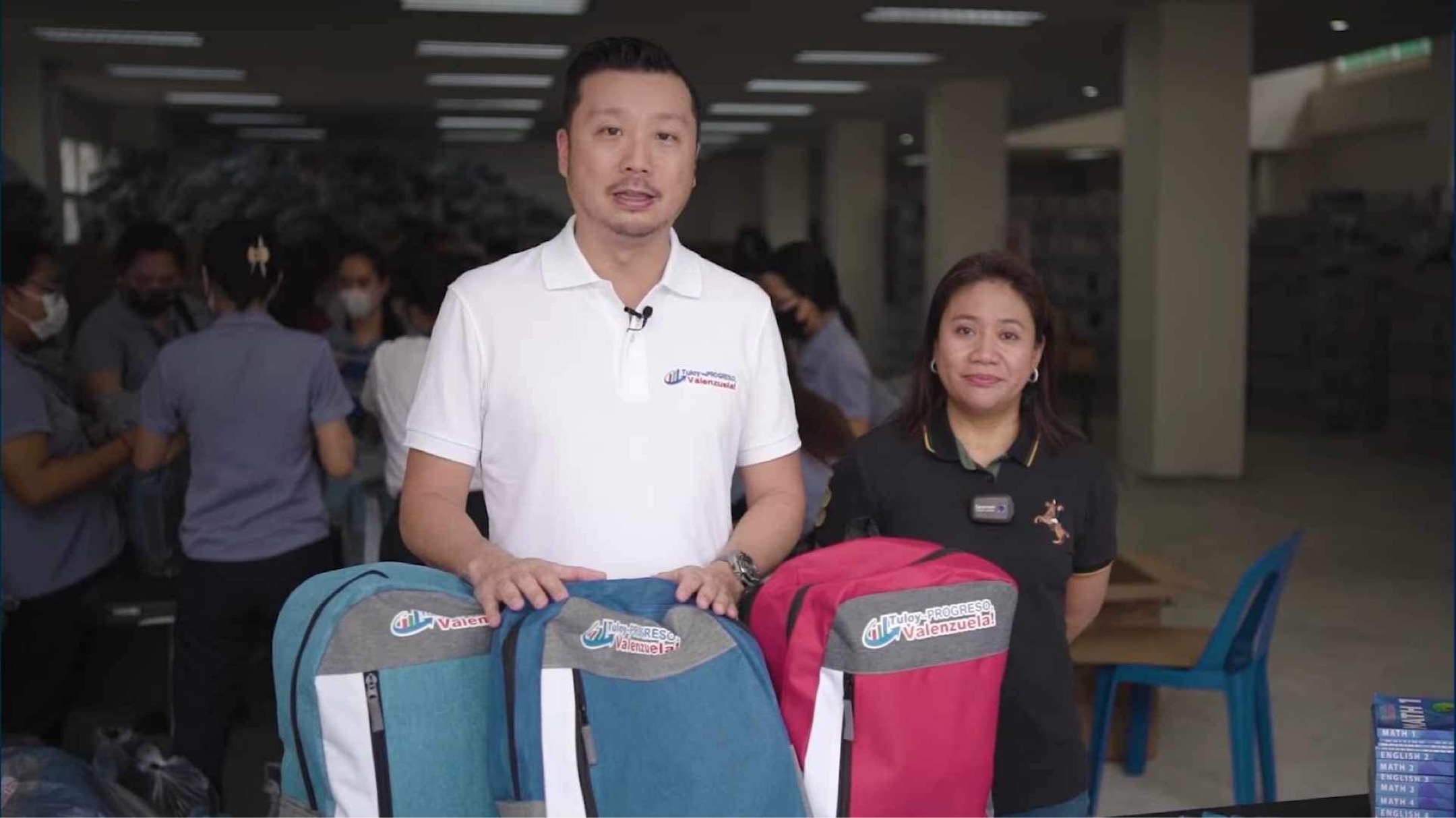Valenzuela LGU to distribute 80,000 'Balik Eskwela' kits to students
Valenzuela City Mayor Weslie ‘Wes’ Gatchalian and Vice Mayor Lorie Natividad-Borja announced that the city government will distribute 80,000 “Balik Eskwela” kits for Kindergarten to Grade 6 students from the city’s public elementary schools this month of August.
In a video posted on the city’s Facebook page on Sunday, Aug. 6, the local chief executive said that the livelihood program, which started in 2014, aims to assist the parents in providing the needs of their children in school.
“Naiintindihan namin ni Vice-Mayor Lorie ang bigat ng gastusin tuwing pasukan. Ang ating mga magulang ay nangangaba, kinakabahan tuwing pasukan dahil marami tayong kailangan na expenses na paukol po sa kanilang pag-aaral. Kaya kahit papaano po, ang lokal na pamahalaan ay sinisikap po nating pagaanin ang gastusin para sa ating mga magulang at higit sa lahat pagandahin na rin po ang ating kagamitan para ho maenganyong mag-aral mabuti yung ating mga estudyante (Vice-Mayor Lorie and I understand the burden of spending every school year. Our parents are worried, nervous every time their children go to school because they need a lot for their education expenses. Somehow, the local government is trying to reduce the expenses for our parents and above all to improve the school supplies to encourage our students to study hard),” Gatchalian said.

The local government said that it allotted around P67,590,967.18 from its funds for the 80,000 school kits.
Distribution to 42 public elementary schools will start on Monday, Aug. 7.
The kits include backpacks, lunch boxes, tumblers, crayons, pencil cases, notebooks, crayons, pencil cases, and other school supplies.
The city vice mayor said that graduating college students from the Pamantasan ng Lungsod ng Valenzuela volunteered to repack the school kits that will be distributed to the young learners.
The school kit distribution is under the city’s Education 360 Degrees program, launched in 2014 to boost the quality of local basic education by investing in different learning aspects including school supplies, teachers’ competency, nutrition of students and infrastructure.